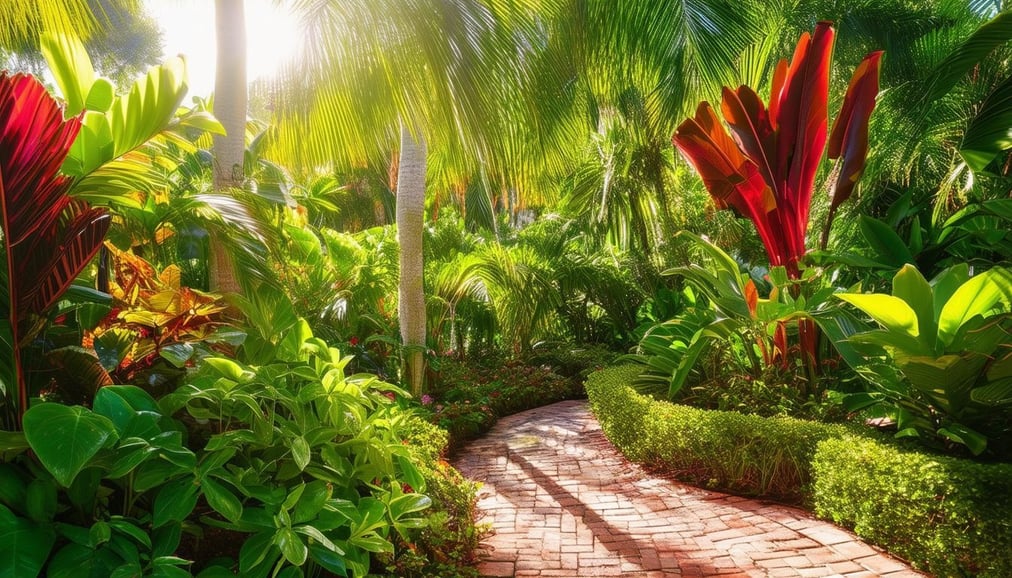
Discover essential tropical plant care tips to help your South Florida garden thrive, transforming your outdoor space into a lush paradise.
Understanding South Florida's Unique Climate
South Florida boasts a distinctive tropical climate characterized by warm temperatures year-round and a pronounced wet season from May to October. This climate is ideal for a variety of tropical plants but also presents unique challenges such as high humidity and the occasional hurricane.
Understanding these climatic conditions is crucial for selecting and maintaining the right plants. The key is to choose species that can thrive in the heat and withstand periods of heavy rain.
Choosing the Right Tropical Plants for Your Garden
Selecting the right tropical plants is the first step toward creating a lush, vibrant garden. Opt for native species that are well-adapted to South Florida's climate, such as the Florida Thatch Palm, Firebush, and Coontie.
Consider the specific needs of each plant in terms of sunlight, soil type, and water. Grouping plants with similar requirements together can help ensure they all thrive.
Watering and Irrigation Techniques for Tropical Plants
Effective watering is essential for the health of tropical plants. In South Florida, an efficient irrigation system can help manage water distribution, especially during the dry season. Drip irrigation systems are particularly effective as they provide consistent moisture without oversaturating the soil.
Monitor the soil moisture regularly and adjust your watering schedule based on seasonal changes. For instance, reduce watering during the wet season to prevent root rot.
Soil Preparation and Fertilization Strategies
Healthy soil is the foundation of a thriving garden. In South Florida, sandy soils are common, which can drain quickly and may not retain nutrients well. Amending the soil with organic matter such as compost can improve its structure and nutrient content.
Regular fertilization is also crucial. Use a balanced, slow-release fertilizer tailored for tropical plants to provide essential nutrients throughout the growing season. Be mindful of the specific needs of each plant species and adjust your fertilization schedule accordingly.
Protecting Your Tropical Garden from Pests and Diseases
Tropical gardens are susceptible to a variety of pests and diseases. Regular monitoring and early intervention are key to maintaining plant health. Common pests in South Florida include aphids, whiteflies, and spider mites, while diseases such as fungal infections can also pose a threat.
Implement integrated pest management (IPM) strategies that combine biological, cultural, and chemical controls. This may include introducing beneficial insects, using organic pesticides, and maintaining proper garden hygiene to prevent the spread of diseases.
Subscribe Here!
.webp?width=200&height=55&name=Logo%20horizontal%2070-2%20(1).webp)